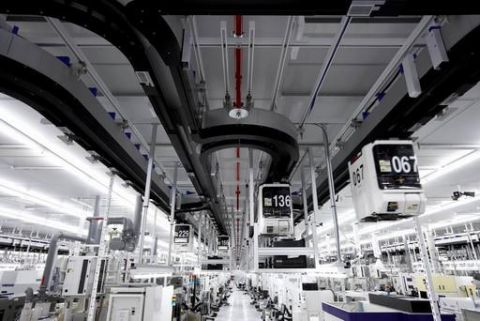Alan Jones, Business Manager
alan_jones@ibew177.org
Administration Tackles Supply Chain Disruptions, Computer Chip Shortages with Made-in-the-USA Policy
Beefing up domestic supply chains while strengthening security and competitiveness is behind the new law incentivizing the production of critical computer chips here in the United States.
President Biden signed the CHIPS and Science Act in July, representing another effort by the president to re-shore the manufacturing of crucial goods produced overseas to the country’s economic and security detriment.
Today, the United States only produces 12 percent of the world’s microchips, which are fundamental components in many modern technology products affected by pandemic-era supply chain disruptions. Moreover, nearly 75 percent of the chip production is in Asia.
“This is a crucial first step toward bringing industries critical to American commerce and national security back to the United States, where American workers can reap the benefits of the necessary technology,” IBEW President Lonnie Stephenson said in a statement.
The CHIPS bill will provide resources for polysilicon-producing facilities across the United States, including Hemlock Semiconductor near Sagamore, Mich., which President Biden visited virtually in July.
“I’m told that one-third of all the chips in the world use the polysilicon made right here in your factory,” Biden said. “Imagine if we had more of these kinds of factories doing some of the most sophisticated manufacturing in the world, employing thousands of workers, including UA plumbers and pipefitters, IBEW electricians, sheet metal workers, ironworkers.”
Along with a bipartisan delegation from Congress, President Stephenson and other labor leaders, President Biden traveled to New Albany, Ohio, to tout a new Intel $20 billion semiconductor factory there that will create 7,000 union construction jobs under a project labor agreement.
On the Sept. 9 visit, President Biden said:
"[PLAs] ensure major projects are handled by well-trained, well-prepared, highly skilled workers. They resolve disputes ahead of time, ensuring safer work sites, avoiding disruptions and work stoppages that can cause expensive delays down the line.
These agreements make sure construction is top-notch and projects are on time, on task, and on budget.
Back in February, I signed an executive order to make sure federal construction projects use these project labor agreements. It’s a big deal that Intel is using one here, and I thank them for that.
Semiconductors are a key component of smartphones, automobiles, advanced medical equipment and other consumer products that have suffered from supply chain problems and global shortages. The new law will make appliances and computers cheaper, create high-paying jobs, and boost American manufacturing.
To watch the full speech at the future Ohio Intel plant, click here

